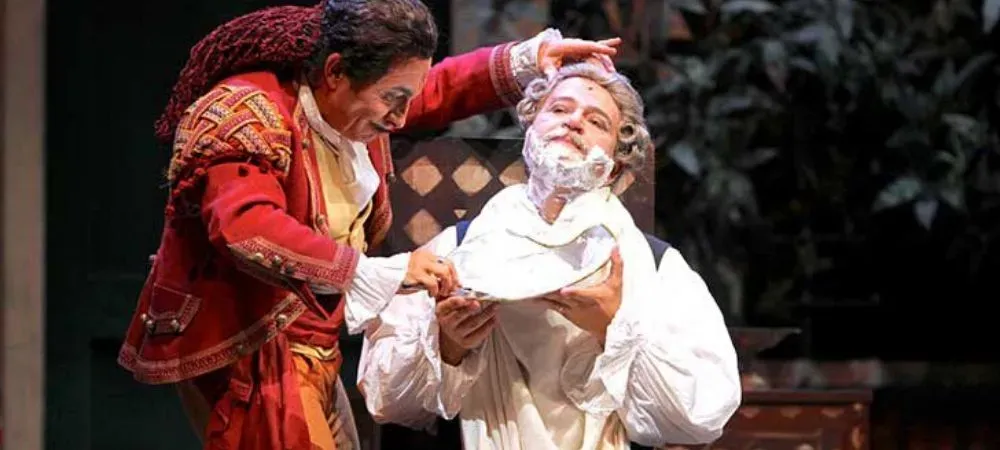Capello
NOUN [masculine]
Meaning and English translation 🔖
Hair
🇬🇧 Each of the fine threadlike strands growing from the scalp of a human.
🇮🇹 Ciascuno dei filamenti sottili che crescono sul cuoio capelluto dell'uomo.
| Masculine ♂️ | Feminine ♀️ | |
|---|---|---|
| Singular | il - un capello | - |
| Plural | i - dei capelli | - |
1. Capello can be both countable and uncountable. When uncountable, it refers to all the hair on the head. When countable, "a hair" or "hairs" can be used to refer to individual strands.
2. Capello is used for both the hair on the head and body hair (human or animal). There's no distinction like the Italian "capello" vs "pelo".
Example sentences 💬
C'è un capello nella minestra.
There's a hair in the soup.
Mi lavo i capelli ogni giorno.
I wash my hair every day.
Ho i capelli ancora bagnati.
My hair is still wet.
This article is brought to you by Giulia School, where you can learn Italian the natural way—with real conversations and passionate teachers guiding you every step of the journey. It’s the closest thing to immersion you can get without living in Italy. Click here to learn more.
Idioms with capello 🇮🇹
Averne fin sopra i capelli di qualcosa/qualcuno
→ To be fed up to the (back) teeth with something/someone
Ho fin sopra i capelli di questo progetto interminabile.
I'm fed up to the teeth with this never-ending project.
Essere attaccato a un capello
→ To hang by a thread
La sua vita è attaccata a un capello, la situazione è molto critica.
His life is hanging by a thread, the situation is very critical.
Avere un diavolo per capello
→ To be in a foul temper / To be enraged / To see red
Oggi il capo ha un diavolo per capello, meglio evitarlo.
Today the boss is in a foul temper, better avoid him.
Far venire i capelli bianchi
→ To make someone's hair turn white (with worry or fear)
Questi ragazzi mi faranno venire i capelli bianchi prima del tempo.
These kids will make my hair turn white before its time.
Guardare il capello
→ To be overly picky / To nitpick
Non guardare sempre il capello, a volte bisogna essere più flessibili.
Don't always nitpick, sometimes you need to be more flexible.
Mettersi le mani nei capelli
→ To be in despair
Quando ha iniziato a studiare il congiuntivo, si è messo le mani nei capelli.
When she started studying the subjunctive, she was in despair.
Non torcere un capello a qualcuno
→ Not to touch / Not to lay a finger on someone
Nonostante le minacce, non gli hanno torto neppure un capello.
Despite the threats, they didn't lay a finger on him.
Sentirsi drizzare i capelli in testa
→ To have one's hair stand on end
Mi si sono drizzati i capelli in testa quando ho sentito il mio nome all’altoparlante dell’aeroporto.
My hair stood on end when I heard my name at the airport’s loudspeaker.
Spaccare il capello in quattro
→ To split hairs
Non spaccare il capello in quattro, la sostanza è chiara!
Don't split hairs, the main point is clear!
Tirare per i capelli
→ To drag someone into something / To be far-fetched
Mi ci hanno tirato per i capelli in questo affare.
They dragged me into this business.
La sua interpretazione del testo sembrava tirata per i capelli.
His interpretation of the text seemed far-fetched.
Where does the word capello come from? 🔎
Capello comes from the Latin capillus, a diminutive of caput meaning "head".
Did you know that... 🤓
Impress your italian friends with curious facts about Italy and its culture
The Barber of Seville: A Premiere That Made Hair Stand on End

Dear friends, today I'm taking you to the heart of Rome, to the Teatro Argentina, just a stone's throw from our office.
It's 1816, and Rossini's "The Barber of Seville" is about to premiere for the first time.
Imagine a young man, just twenty-four years old, already famous for works like "Tancredi" and "The Italian Girl in Algiers". Teatro Argentina commissions him to write a new opera for the 1816 Carnival. Rossini, with the enthusiasm of someone who doesn't yet have a single grey hair, chooses to adapt Beaumarchais' famous comedy, "The Barber of Seville".
This opera offers us a fascinating glimpse into the society of the time. Barbershops were not just places to get a haircut, but real centers for meeting and exchanging information. They were, we might say, the social networks of the 19th century. Through the character of Figaro, the city's factotum barber, Rossini shows us how central these places were to social life.
But there's a problem: another very famous composer, Giovanni Paisiello, had already written an opera on this subject 34 years earlier, and it was still much loved. Rossini, with great respect, asks Paisiello's permission and even changes the title of his opera to "Almaviva, or the Useless Precaution". A precaution that, as we'll see, won't prevent him from tearing his hair out!
Our young composer sets to work at an incredible speed: in just 13 days, he writes 600 pages of music!
Finally, the night of the premiere arrives, February 20, 1816. Teatro Argentina is full, the atmosphere electric. But as soon as Rossini enters the theater, dressed in a new hazelnut-colored suit, the audience begins to murmur. It's the beginning of an evening that we can define, without exaggeration, as disastrous, enough to make your hair stand on end!
During the performance, everything that can go wrong does: guitar strings break, Don Basilio trips and breaks his nose, a black cat crosses the stage terrifying the soprano! The audience whistles, shouts, makes a terrible racket. In the end, a fight even breaks out!
But why all this? Well, today we know it was a real conspiracy. There were people paid to whistle and create havoc. Perhaps Paisiello feared comparison with the young Rossini, perhaps there were rivalries between theaters, perhaps someone wanted Rossini to return to Naples...
Rossini, despite his apparent indifference, suffered greatly from this fiasco. In a letter to his mother, he wrote: "Last night my opera was staged and was solemnly whistled at... what madness, what extraordinary things one sees in this country".
But the story doesn't end here, fortunately. From the second performance onwards, without the troublemakers, the audience applauded enthusiastically. The opera was a triumph! Ironically, Rossini didn't witness this success: fearing another evening that would make him tear his hair out, he had remained locked in his room.
Today, "The Barber of Seville" is one of the most beloved and performed operas in the world. It's even appreciated by composers who didn't like Italian opera, such as Beethoven and Wagner.
The next time you pass by Teatro Argentina, remember that evening in 1816 and... stop by for a coffee with us!





